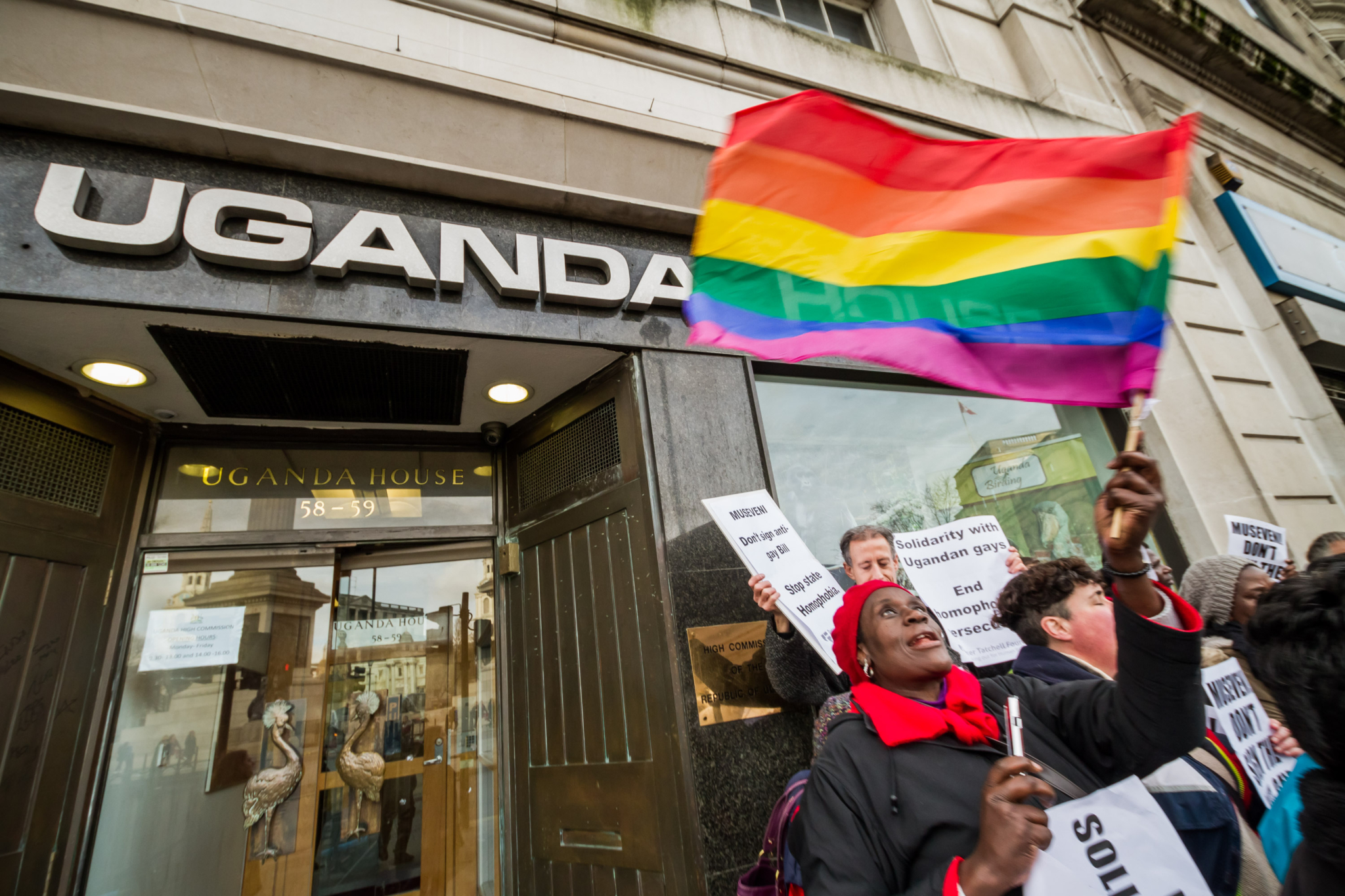Ugandan President Yoweri Museveni must urgently veto the draconian and overly broad Anti-Homosexuality Bill which criminalizes consensual same-sex conduct, Amnesty International said on Thursday.
According to Uganda’s Constitution, Museveni has until 21 April 2023 to either give his assent to the Bill, return it to Parliament for revisions, or inform the Speaker of Parliament that he will veto it. The Bill may, however, pass into law without the President’s assent if he returns it to Parliament twice.
Uganda’s Anti-Homosexuality Bill criminalizes those who “promote” homosexuality or “attempt to commit the offence of homosexuality.” It also imposes a duty on the people of Uganda to report “acts of homosexuality” or else face a potential jail term of up to six months. Moreover, it contains a provision on “aggravated homosexuality” in relation to circumstances where a person contracts a terminal illness because of a sexual act. This provision will likely deter individuals from the LGBTI community living with HIV/AIDs from accessing health care and medical services.
‘One of the most extreme anti-LGBTI laws in the world’
“The passing of this appalling bill is a heart-breaking moment for the LGBTI community and their loved ones in Uganda. President Museveni must urgently pay heed to the community’s outcry against this Bill and urgently veto it. Nobody should ever be criminalized for their sexual orientation or gender identity,” said Agnes Callamard, Secretary General of Amnesty International.
“This Bill also flies in the face of a resolution on protecting LGBTI people agreed by the African Commission, while its callous recommendation of the death penalty for ‘aggravated homosexuality’ makes it one of the most extreme anti-LGBTI laws in the world and further violates international standards on death penalty.”
Amnesty International remains extremely concerned that homophobic comments made by President Museveni and other senior officials before, during and after the Bill was passed by Parliament are already inciting hatred, discrimination, and violence against individuals because of their sexual orientation or gender identity.
On 17 April 2023, a court in Jinja, in eastern Uganda, denied bail to six young educators working for healthcare organizations after they were arrested on 8 April 2023 and charged with “forming part of a criminal sexual network.” The Uganda Police Force confirmed that it conducted forced anal exams on the six individuals and tested them for HIV.
“The vague provisions in this legislation that criminalize the ‘promotion of homosexuality’ or touching another person ‘with the intention of committing the act of homosexuality’ will, in reality, institutionalize discrimination, hatred, and prejudice against LGBTI people and block the legitimate work of civil society organizations. This deeply repressive Bill must never see the light of day,” said Agnes Callamard.
“Instead of persecuting LGBTI people, the Ugandan authorities should protect their rights by aligning their laws with international human rights law and standards. Criminalizing consensual same-sex conduct blatantly violates numerous human rights, including the rights to dignity, equality before the law, equal protection by the law, and non-discrimination.”
Amnesty International calls on the Ugandan authorities not only to veto this draconian Bill but to review all laws in the country’s Penal Code that criminalize same-sex conduct. President Museveni should ensure Uganda protects and promotes human rights for all residents, regardless of their sexual orientation or gender identity.
Uganda Anti-Homosexuality Bill targets expressions of LGBTQI, non-binary gender identities
More than 30 countries in Africa ban consensual same-sex conduct yet Uganda’s proposed Anti-Homosexuality Bill is the first to outlaw anyone merely for “holding out as a lesbian, gay, transgender, a queer, or any other sexual or gender identity that is contrary to the binary categories of male and female,” with a punishment of up to ten years in prison.
On 21 March 2023, the Ugandan Parliament passed the Anti-Homosexuality Bill, with 387 out of 389 MPs voting in favour. For the Bill to pass into law, however, President Yoweri Museveni must give his assent to the new legislation.
In 2014, the African Commission on Human and Peoples’ Rights adopted Resolution 275, which condemns attacks by both state and non-state actors against persons based on their assumed or real sexual orientation or gender identity. The African Commission also called on governments to prevent violence and other human rights violations against individuals based on their imputed or real sexual orientation or gender identity.
On 20 April 2023, the European Parliament passed a resolution on the universal decriminalization of homosexuality considering recent developments in Uganda. The EU resolution called on President Museveni not to give his assent to the Anti-Homosexuality Bill or any other similar legislation in future.






















